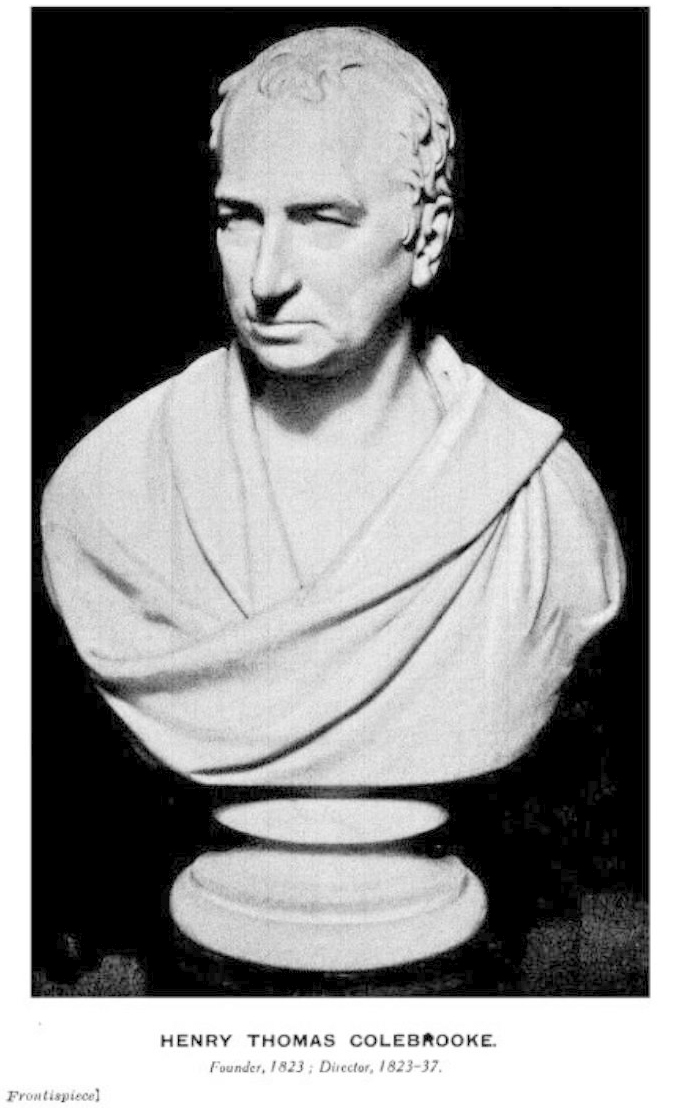
Henry Thomas Colebrooke
15 June 1765
10 March 1837 (aged 71)
British
Sanskrit scholar, one of the founders of the Royal Asiatic Society, one of the founders and second president of the Royal Astronomical Society
Biography[edit]
Henry Thomas Colebrooke was born on 15 June 1765. His parents were Sir George Colebrooke, 2nd Baronet, MP for Arundel and Chairman of the East India Company from 1769, and Mary Gaynor, daughter and heir of Patrick Gaynor of Antigua. He was educated at home,[2] and from the age of
twelve to sixteen he lived in France.[3]
In 1782 Colebrooke was appointed through his father's influence to a writership with the East India Company in Calcutta. In 1786 and three years later he was appointed assistant collector in the revenue department at Tirhut. He wrote Remarks on the Husbandry and Commerce of Bengal,[3] which was privately published in 1795, by which time he had transferred to Purnia. This opposed the East India Company's monopoly on Indian trade, advocating instead for free trade between Britain and India, which caused offence to the East India Company's governors.[2]
He was appointed to the magistracy of Mirzapur in 1795 and was sent to Nagpur in 1799 to negotiate an allowance with the Raja of Berar. He was unsuccessful in this, due to events elsewhere, and returned in 1801.
On his return was made a judge of the new court of appeal in Calcutta, of which he became president of the bench in 1805. Also in 1805, Lord Wellesley appointed him honorary professor of Hindu law and Sanskrit at the college of Fort William.[3] In 1807 he became a member of council, serving for five years, and was elected President of the Asiatic Society of Calcutta. Colebrooke married Elizabeth Wilkinson in 1810. The marriage was short-lived and she died in 1814.[1] He returned to England in 1815.[2]
In 1816 he was elected to the fellowship of both the Royal Society and the Royal Society of Edinburgh[1] In 1820 he was a founder of the Royal Astronomical Society. He often chaired the society's meetings in the absence of the first president, William Herschel, and was elected as its second president on Herschel's death, serving 1823–1825. In 1823 he was also a founder of the Royal Asiatic Society, chairing its first meeting although he declined to become its president.[2][4][5][6]